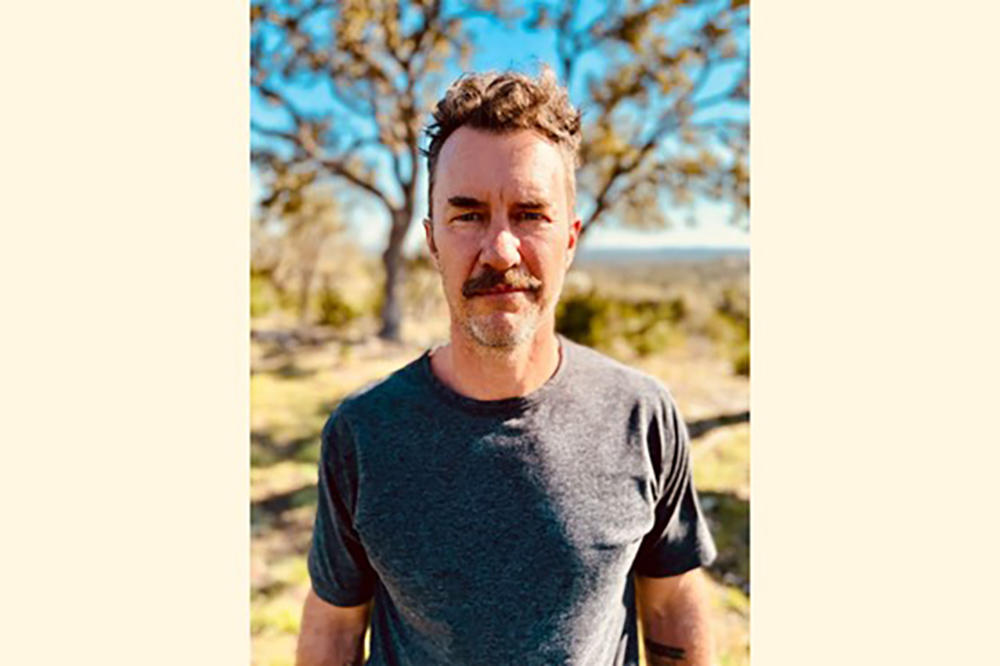 在过去的十年里,汤姆布鞋(Toms)的创始人布雷克·麦考斯基(Blake Mycoskie)一直在与抑郁和孤独作斗争。图片来源:JUNTO
在过去的十年里,汤姆布鞋(Toms)的创始人布雷克·麦考斯基(Blake Mycoskie)一直在与抑郁和孤独作斗争。图片来源:JUNTO布雷克·麦考斯基于2006年创立汤姆布鞋后,迅速成为创业明星。这个以“买一送一”模式著称的便鞋品牌成为老少皆宜的舒适鞋款,深受时尚和慈善人士的喜爱。据该品牌网站称,到2020年,该品牌将捐赠超过1亿双鞋。
然而,当麦考斯基在2014年以6.25亿美元的价格将公司50%的股份出售给贝恩资本(Bain Capital),并从领导岗位退居二线,成为公司的“首席捐鞋者”时,他意识到创业成功只能带他走到这一步了。
麦考斯基对《财富》杂志表示:"我失去很多明确的目标,也找不到生活的意义。”
在过去的十年里,麦考斯基一直饱受抑郁和孤独之苦,这主要是因为他将自己的身份与曾经掌舵的品牌紧紧联系在一起。在2016年《哈佛商业评论》(Harvard Business Review)的一篇专栏文章中,麦考斯基写道,尽管取得了巨大的成功,但他开始感到“幻灭”。“我与许多负责日常运营的高管失去了联系。汤姆布鞋曾是我存在的理由,现在却感觉像是一份工作。”当时,他已经休了一段假,在考虑下一步的打算。
他在专栏文章的最后乐观地表示,他的目标是将汤姆布鞋扩展到烘焙业务,每售出一袋咖啡就向有需要的人捐赠水,但他的孤独和抑郁依然存在。
麦考斯基的孤独感也源于他的流浪生活。最近,他和家人在湾区定居下来,但他表示自己没有收获渴望已久的亲密友谊。
今年3月,麦考斯基从一位朋友那里得知,在德克萨斯州奥斯汀有一个为期三天的男性静修营,该活动由Junto(旨在改善男性心理健康的社区)主办。他报了名,然后收拾好行囊。
他被介绍给其他男性,其中有很多像他一样的企业家。麦考斯基参加了有关情商、关系型领导力和个人完整性的练习,这是Junto非暴力沟通的三大支柱。辅导员与他们讨论了如何进行艰难的对话,特别是与伴侣,如何观察而不是评判,如何谈论感受而不是转为愤怒,以及如何表达需求和请求。麦考斯基说:“这些内容我闻所未闻。我们每个人都举了一个生活中可能发生冲突的例子。静修营为我们提供一个真实的模式,可以在工作和领导中,在同事、员工和董事会中使用。”
对麦考斯基来说,寻找人脉和社区可能比休假更有益。
他说:“我参加此次静修营的原因是我感觉有点困顿,陷入了困境。此次静修营并不关注男性的体力或职业履历:大家谈论的是面临的挑战,而不是头衔。我们禁止谈论工作。参加静修营能给我们带来强大力量。”
角落办公室的孤独
麦考斯基的经历并非个例。每个人,无论其性别认同和头衔如何,都可能面临孤独,而代表性不足的员工在进入角落办公室时遇到的障碍要多得多。然而,男性领导者表示,他们感到自己与外界脱节,要表现出刻板印象中铁面无私的硬汉形象,因而面临着巨大压力。
安德鲁·霍恩(Andrew Horn)在注意到男性对建立联系的迫切需求后,于2017年创立了Junto,这种需求在更广泛的孤独流行病中变得更为明显——40%的男性表示他们从不谈论自己的心理健康。
随着越来越多的男性愿意寻找空间建立联系,并展示情感脆弱的一面,静修营正成为填补这一空白的一种方式。他们中的许多人是第一次这样做。
霍恩在纽约市举办了第一场活动,有八位男士参与,在此之后,他发现了建立联系带来的变革力量,并致力于帮助男性在其生活、工作和服务的空间中展示真实的自己。
他在接受《财富》杂志采访时表示:“我从中感受到了一种真实感。从那一刻开始,我就清楚地感觉到,这种男人们可以聚在一起的、完全透明的空间有其特别之处。”

霍恩每季度举办一次静修营,并表示,为男性创造分享情感的空间,有助于他们展示更真实的自己,以及培养目标。另一种选择则会造成伤害。Lightfully Behavioral Health的治疗师马修·霍奇金(Matthew Hodgkin)说,压抑情绪会导致人们出于愤怒采取行动,并导致人们采取有害的替代方法来麻痹痛苦,比如进行自我治疗。
霍恩说:“接近我们也会变得更安全。”
正如霍恩所说,“情绪掌控”可以帮助人们实时管理孤独等情绪。花时间去认识和反思生活中不那么光鲜的一面是驾驭心灵的一部分。
霍恩说:“如果我感到愤怒、悲伤、羞耻,这些情绪会影响思想和行为。我是希望这种情形在自己有意识的情况下发生,还是无意识地发生?”
学会敞开心扉
一开始,展示脆弱的一面往往会让人感到害怕,麦考斯基也未能幸免。
“你会环顾房间,然后想,‘我来对地方了吗?’”麦考斯基谈到这次静修营经历时说。“你会产生某种疑虑。这些人和我面临同样的挑战吗?这次静修有意义吗?”
最终,麦考斯基分享了他的感激之情,以及离开公司后的抑郁和孤独感。他说:“我们都有一些共同之处,可以在一起分析情况。”
静修营结束后,麦考斯基并没有天真地认为这是解决一切问题的办法。他的公司后来被债权人接管,进行了债务重组。他正在考虑开办一家帮助其他企业家的辅导企业,并计划将沟通课程引入婚姻生活。他还认为,为男性提供空间来挑战灌输给他们的男子气概叙事,对于改善心理健康结果、人际关系和领导力至关重要。“你正在经历的任何事情,很有可能会有一对夫妇,至少是其他男性,也在经历同样的事情,"麦考斯基说,他注意到真实的沟通如何能成为孤独的解药。"你并不是唯一一个在孤岛上思考问题的人。"
虽然参加周末举办的男性静修营可能要花费数千美元,但霍恩希望通过为男性群体提供工具和课程,让他们在自己的时间,比如在上班期间或下班后做到这一点,从而让“情绪掌控”变得更为普遍。(财富中文网)
译者:中慧言-王芳
在过去的十年里,汤姆布鞋(Toms)的创始人布雷克·麦考斯基(Blake Mycoskie)一直在与抑郁和孤独作斗争。
布雷克·麦考斯基于2006年创立汤姆布鞋后,迅速成为创业明星。这个以“买一送一”模式著称的便鞋品牌成为老少皆宜的舒适鞋款,深受时尚和慈善人士的喜爱。据该品牌网站称,到2020年,该品牌将捐赠超过1亿双鞋。
然而,当麦考斯基在2014年以6.25亿美元的价格将公司50%的股份出售给贝恩资本(Bain Capital),并从领导岗位退居二线,成为公司的“首席捐鞋者”时,他意识到创业成功只能带他走到这一步了。
麦考斯基对《财富》杂志表示:"我失去很多明确的目标,也找不到生活的意义。”
在过去的十年里,麦考斯基一直饱受抑郁和孤独之苦,这主要是因为他将自己的身份与曾经掌舵的品牌紧紧联系在一起。在2016年《哈佛商业评论》(Harvard Business Review)的一篇专栏文章中,麦考斯基写道,尽管取得了巨大的成功,但他开始感到“幻灭”。“我与许多负责日常运营的高管失去了联系。汤姆布鞋曾是我存在的理由,现在却感觉像是一份工作。”当时,他已经休了一段假,在考虑下一步的打算。
他在专栏文章的最后乐观地表示,他的目标是将汤姆布鞋扩展到烘焙业务,每售出一袋咖啡就向有需要的人捐赠水,但他的孤独和抑郁依然存在。
麦考斯基的孤独感也源于他的流浪生活。最近,他和家人在湾区定居下来,但他表示自己没有收获渴望已久的亲密友谊。
今年3月,麦考斯基从一位朋友那里得知,在德克萨斯州奥斯汀有一个为期三天的男性静修营,该活动由Junto(旨在改善男性心理健康的社区)主办。他报了名,然后收拾好行囊。
他被介绍给其他男性,其中有很多像他一样的企业家。麦考斯基参加了有关情商、关系型领导力和个人完整性的练习,这是Junto非暴力沟通的三大支柱。辅导员与他们讨论了如何进行艰难的对话,特别是与伴侣,如何观察而不是评判,如何谈论感受而不是转为愤怒,以及如何表达需求和请求。麦考斯基说:“这些内容我闻所未闻。我们每个人都举了一个生活中可能发生冲突的例子。静修营为我们提供一个真实的模式,可以在工作和领导中,在同事、员工和董事会中使用。”
对麦考斯基来说,寻找人脉和社区可能比休假更有益。
他说:“我参加此次静修营的原因是我感觉有点困顿,陷入了困境。此次静修营并不关注男性的体力或职业履历:大家谈论的是面临的挑战,而不是头衔。我们禁止谈论工作。参加静修营能给我们带来强大力量。”
角落办公室的孤独
麦考斯基的经历并非个例。每个人,无论其性别认同和头衔如何,都可能面临孤独,而代表性不足的员工在进入角落办公室时遇到的障碍要多得多。然而,男性领导者表示,他们感到自己与外界脱节,要表现出刻板印象中铁面无私的硬汉形象,因而面临着巨大压力。
安德鲁·霍恩(Andrew Horn)在注意到男性对建立联系的迫切需求后,于2017年创立了Junto,这种需求在更广泛的孤独流行病中变得更为明显——40%的男性表示他们从不谈论自己的心理健康。
随着越来越多的男性愿意寻找空间建立联系,并展示情感脆弱的一面,静修营正成为填补这一空白的一种方式。他们中的许多人是第一次这样做。
霍恩在纽约市举办了第一场活动,有八位男士参与,在此之后,他发现了建立联系带来的变革力量,并致力于帮助男性在其生活、工作和服务的空间中展示真实的自己。
他在接受《财富》杂志采访时表示:“我从中感受到了一种真实感。从那一刻开始,我就清楚地感觉到,这种男人们可以聚在一起的、完全透明的空间有其特别之处。”
参加Junto静修营的男士们正在进行写作练习。
霍恩每季度举办一次静修营,并表示,为男性创造分享情感的空间,有助于他们展示更真实的自己,以及培养目标。另一种选择则会造成伤害。Lightfully Behavioral Health的治疗师马修·霍奇金(Matthew Hodgkin)说,压抑情绪会导致人们出于愤怒采取行动,并导致人们采取有害的替代方法来麻痹痛苦,比如进行自我治疗。
霍恩说:“接近我们也会变得更安全。”
正如霍恩所说,“情绪掌控”可以帮助人们实时管理孤独等情绪。花时间去认识和反思生活中不那么光鲜的一面是驾驭心灵的一部分。
霍恩说:“如果我感到愤怒、悲伤、羞耻,这些情绪会影响思想和行为。我是希望这种情形在自己有意识的情况下发生,还是无意识地发生?”
学会敞开心扉
一开始,展示脆弱的一面往往会让人感到害怕,麦考斯基也未能幸免。
“你会环顾房间,然后想,‘我来对地方了吗?’”麦考斯基谈到这次静修营经历时说。“你会产生某种疑虑。这些人和我面临同样的挑战吗?这次静修有意义吗?”
最终,麦考斯基分享了他的感激之情,以及离开公司后的抑郁和孤独感。他说:“我们都有一些共同之处,可以在一起分析情况。”
静修营结束后,麦考斯基并没有天真地认为这是解决一切问题的办法。他的公司后来被债权人接管,进行了债务重组。他正在考虑开办一家帮助其他企业家的辅导企业,并计划将沟通课程引入婚姻生活。他还认为,为男性提供空间来挑战灌输给他们的男子气概叙事,对于改善心理健康结果、人际关系和领导力至关重要。“你正在经历的任何事情,很有可能会有一对夫妇,至少是其他男性,也在经历同样的事情,"麦考斯基说,他注意到真实的沟通如何能成为孤独的解药。"你并不是唯一一个在孤岛上思考问题的人。"
虽然参加周末举办的男性静修营可能要花费数千美元,但霍恩希望通过为男性群体提供工具和课程,让他们在自己的时间,比如在上班期间或下班后做到这一点,从而让“情绪掌控”变得更为普遍。(财富中文网)
译者:中慧言-王芳
For the last decade, Blake Mycoskie, founder of Toms, has dealt with periods of depression and loneliness.
JUNTO
After Blake Mycoskie founded Toms in 2006, he quickly rose to entrepreneurial stardom. Known for its buy-one give-one model, the slip-on shoe brand became a staple of comfort for the young and the old who appreciated the style and philanthropic effort. The brand donated over 100 million pairs of shoes by 2020, according to their website.
However, when Mycoskie sold a 50% share of the company, valued at $625 million, to Bain Capital in 2014 and stepped back from his leadership role to become the company’s “Chief Shoe Giver,” he learned that entrepreneurial success only gets you so far.
“I lost a lot of my clear meaning and purpose,” Mycoskie tells Fortune.
For the last decade, Mycoskie has dealt with periods of depression and loneliness, mainly due to how tightly he had tethered his identity to the brand he once helmed. In a 2016 op-ed in the Harvard Business Review, Mycoskie wrote that he began feeling “disillusioned” despite immense success. “I had lost my connection to many of the executives who were running daily operations. What had once been my reason for being now felt like a job.” At the time, he had taken a sabbatical to think about his next steps.
He concluded the op-ed optimistic about his goal to expand Toms to a roastery business, donating water to those in need with every coffee bag sold, but his loneliness and depression persisted.
Mycoskie’s loneliness also stems from being somewhat of a nomad. Having recently settled down in the Bay Area with his family, he says he doesn’t have the close friendships he desires.
His feelings of disconnection finally propelled Mycoskie, who, in March of this year, learned from a friend about a three-day all-men’s retreat in Austin, Texas, hosted by Junto, a community for men to improve their mental health. He signed up and packed his bags.
He was introduced to other men, many entrepreneurs like himself. Mycoskie participated in exercises around emotional intelligence, relational leadership, and personal integrity—Junto’s three pillars of nonviolent communication. Facilitators talked with the men about how to have difficult conversations, especially with a partner, how to observe versus judge, talk about feelings rather than turn to anger, and how to articulate needs and requests. “That was something I had never heard of,” Mycoskie says. “We each brought up an example in our life where [conflict] would happen. It gave us a real model that we can use both in work and leadership, with coworkers, employees, and boards of directors.”
Finding connections and community may have been more beneficial for Mycoskie than that sabbatical from work.
“What caused me to go is just kind of feeling a little bit stuck and a little bit in a rut,” he says. The retreat didn’t focus on men’s physical strengths or professional resumés: They spoke of their challenges, not their titles. “We were asked not to talk at all about what we do,” he says. That was a really powerful thing.”
Loneliness in the corner office
Mycoskie’s experience is not an isolated one. Everyone, no matter their gender identity and title, can face loneliness, and underrepresented employees experience far more barriers to the corner office. However, male leaders say they feel disconnected and face immense pressure to represent the stereotypical, emotionless tough guy.
Andrew Horn founded Junto in 2017 after noticing a critical need for connection among men, which has become more apparent amid the broader loneliness epidemic—40% of men say they never talk about their mental health.
Retreats are becoming one way to fill in the gap as more men are open to finding spaces to connect and be emotionally vulnerable—many for the first time.
After hosting his first event with eight men in New York City, Horn saw the transformative power of feeling connected and aimed to help men show up authentically in the spaces they live, work, and serve in.
“There was just a level of realness that came out of it,” he tells Fortune. “From that first moment, I felt so clear that there was something special about this type of space where men could come together to be completely transparent.”
Men during a Junto retreat partake in a writing exercise.
JUNTO
Creating space for men to share their emotions helps them show up more authentically and cultivate purpose, Horn says, who hosts the company’s quarterly retreats. The alternative is damaging. Suppressed emotions can cause people to act out of anger and lead people to harmful alternatives to numb the pain, like self-medicating, says Matthew Hodgkin, a therapist at Lightfully Behavioral Health.
“We become safer people to be around,” says Horn.
“Emotional mastery,” as Horn puts it, helps people manage emotions like loneliness in real time. Taking time to recognize and reflect on the less-than-glamorous side of life is a part of mastering the mind.
“If I’m feeling angry, if I’m feeling sad, if I’m feeling shame, those things are going to imprint onto our thoughts and onto our actions,” says Horn. “Do I want that to happen consciously or unconsciously?”
Learning to open up
Being vulnerable often feels scary at first pass, and Mycoskie was not immune to the phenomenon.
“You’re kind of looking around the room, you’re kind of wondering, ‘Am I in the right place?’” Mycoskie says of the retreat experience. “There’s a certain set of doubts. Do the guys have the same challenges I have? Is this going to be meaningful?”
Eventually, though, Mycoskie shared what he was grateful for and his feelings of depression and loneliness after moving on from his business. “We all had some commonalities that we could really unpack together,” he says.
After the retreat, while not naive to believe it’s a fix-all, Mycoskie, whose company has since been taken over by creditors to restructure debt, reflected on how to find more purpose. He is toying with starting a coaching business to help other entrepreneurs and plans to take the communication lessons into his marriage. He also sees spaces for men to challenge instilled narratives about masculinity as crucial for improving mental health outcomes, relationships, and leadership. “Anything that you’re going through, there’s a very good chance there’ll be a couple, other men, at least, going through the same thing,” Mycoskie says, who noticed how authentic communication can be the antidote to loneliness. “You’re not just thinking about it in a silo by yourself.”
While men’s retreats can cost a couple thousand dollars for a weekend, Horn hopes to make “emotional mastery” more commonplace by giving groups of men the tools and curriculum to do this on their own time—in or out of the office.






